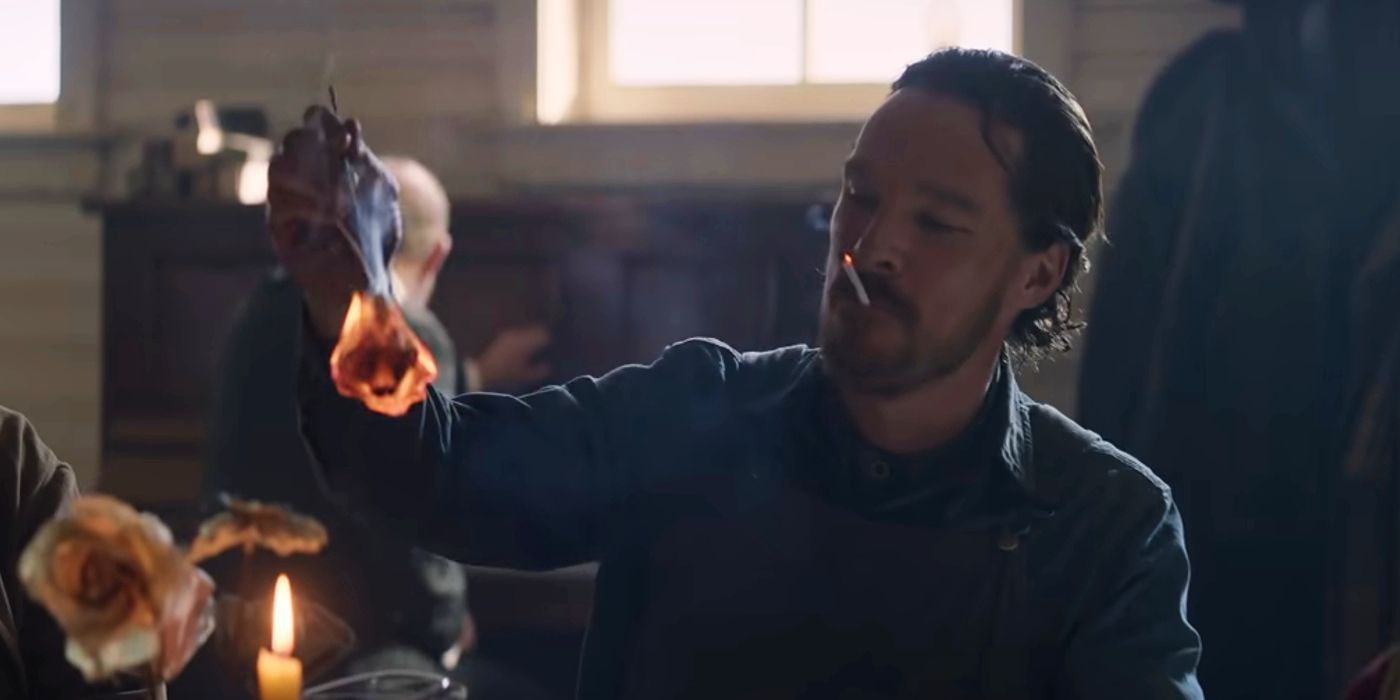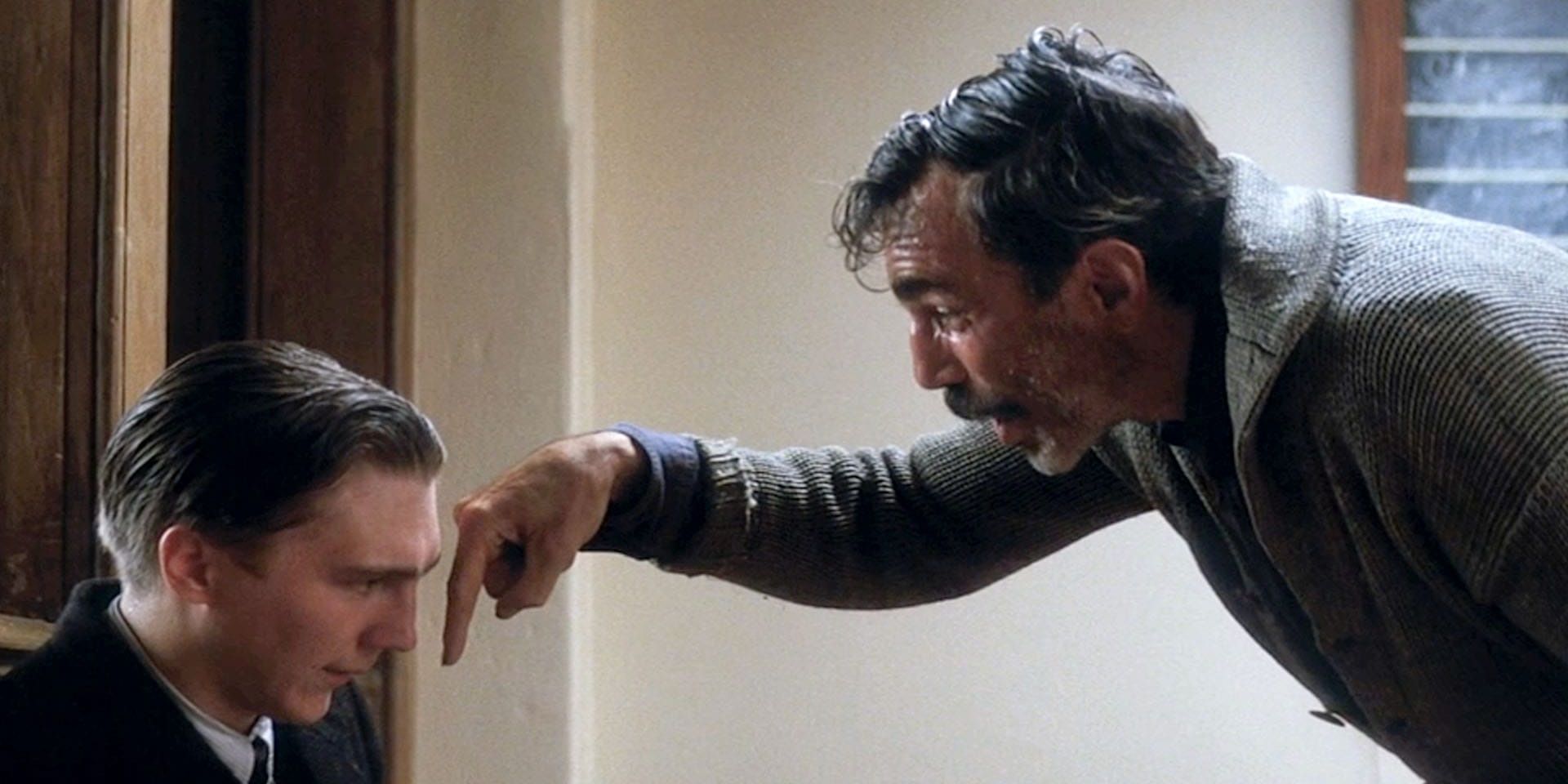Benedict Cumberbatch, star of The Power of the Dog, compares his new Western to Paul Thomas Anderson's There Will Be Blood. Known to the world for his work on Sherlock or as the MCU's Doctor Strange, Cumberbatch has become an in-demand talent, which landed him in the role of Phil Burbank in Jane Campion's The Power of the Dog. Campion is best known for writing and directing 1993's The Piano, which was nominated for multiple Academy Awards, winning Best Original Screenplay, among others. She also wrote and directed The Power of the Dog, another awards contender, having already won Best Motion Picture - Drama and Best Director at the Golden Globes.
The Power of the Dog follows Cumberbatch's Phil, a charismatic man capable of instilling fear in those around him. When Phil's brother brings his new wife and her son home, Phil asserts his dominance and struggles with the possibility of finding love. Cumberbatch shares the screen with Kirsten Dunst, Jesse Plemons, and Kodi Smit-McPhee in a story that challenges the masculine tropes inherent in Westerns. Now, as The Power of the Dog continues to garner stellar reviews and awards, the lead actor has compared it to another award-winning film set in the Old West.
In a recent interview with W Magazine, Cumberbatch is asked if Campion made him watch any other Westerns in preparation for The Power of the Dog. While Cumberbatch says "No," he quickly compars the film to 2007's There Will Be Blood, saying, "It's about a move from a more analog, animal, manpower-driven era into mechanization." He continues discussing how Campion's film also features a man "who can't let go of what was," much like the protagonist of PTA's. Check out Cumberbatch's comments below:
The Power of the Dog [as a Western] is closer to There Will Be Blood. It's about a period of transition. It's about a move from a more analog, animal, manpower-driven era into mechanization. There’s a man who can't let go of what was and wants to celebrate that, and a brother who's moving toward a love in an automobile that just separates exactly what was going on in that era. So that is against the backdrop of a Western, the whole thing of landscape being another character, whether it's alienating and terrifying, the house being somewhere that's almost haunted. For my character, Phil, the landscape is everything that gives him solace, purpose, control, as well as privacy and freedom to remember who he was and perhaps still is, although he doesn't allow himself to be it.
There Will Be Blood follows Daniel Day-Lewis' Daniel Plainview, an oilman with a similarly charismatic and fear-inducing nature to Cumberbatch's Phil. As the latter actor states, both films focus on a time of change in the old west, with characters stuck in antiquated mindsets. While The Power of the Dog may be a bit more progressive in its commentary, the similarities in the characters are apparent. Cumberbatch even seemed to channel Day-Lewis' method-acting style by not showering while filming The Power of the Dog.
Outside the realm of story, both films share the fact that they are awards darlings. Day-Lewis won a Best Actor Oscar for his role in There Will Be Blood, a feat that Cumberbatch could end up pulling off himself after being nominated for the same award at the Golden Globes. The Power of the Dog is expected to grab several Oscar nominations, though the competition is tough. However, the prospects are high, with The Power of the Dog landing Best Picture at the Golden Globes.
Source: W Magazine


